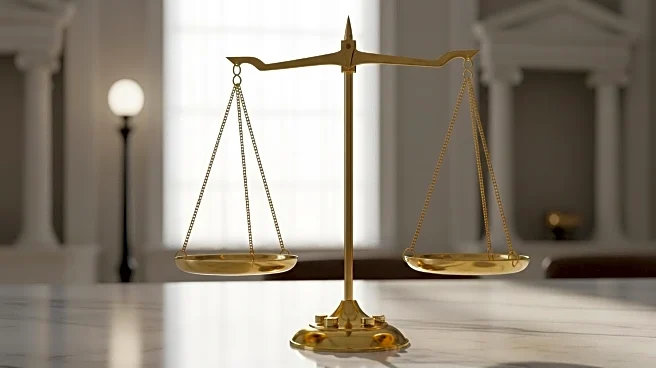What's Happening?
A federal judge in Rhode Island has ruled that the National Endowment for the Arts (NEA) policy of reviewing grant applications for compliance with President Trump's executive order on 'gender ideology' is unconstitutional. The lawsuit, filed by arts organizations including Rhode Island Latino Arts and the National Queer Theater, argued that the policy violated First Amendment rights by potentially barring them from seeking grants based on artistic merit. The NEA's policy, adopted following an executive order by President Trump, aimed to prevent federal funds from promoting gender ideology. Despite the NEA softening its stance, the judge found that the review process still violated the First Amendment by restricting artists' speech based on viewpoint.
Why It's Important?
The ruling is significant as it underscores the tension between government policies and constitutional rights, particularly in the arts sector. The decision protects the freedom of expression for artists and organizations, ensuring that government funds cannot be used to enforce ideological conformity. This case highlights the ongoing debate over gender identity and the role of federal agencies in regulating artistic content. The ruling may influence future policies and legal challenges related to government funding and artistic freedom, impacting how arts organizations operate and receive support.
What's Next?
Following the ruling, the NEA may need to revise its grant application policies to comply with constitutional standards. Arts organizations affected by the policy may seek to reapply for grants without the restrictions imposed by the executive order. The decision could prompt further legal challenges against similar policies in other federal agencies. Stakeholders, including the ACLU and arts advocacy groups, may continue to monitor and challenge government actions that they perceive as infringing on constitutional rights.
Beyond the Headlines
The case raises broader questions about the intersection of government policy and individual rights, particularly in the context of gender identity. It highlights the potential for executive orders to impact cultural and artistic expression, and the role of the judiciary in safeguarding constitutional freedoms. The ruling may contribute to ongoing discussions about the balance between government oversight and artistic independence, influencing public policy and societal attitudes towards gender and identity.










